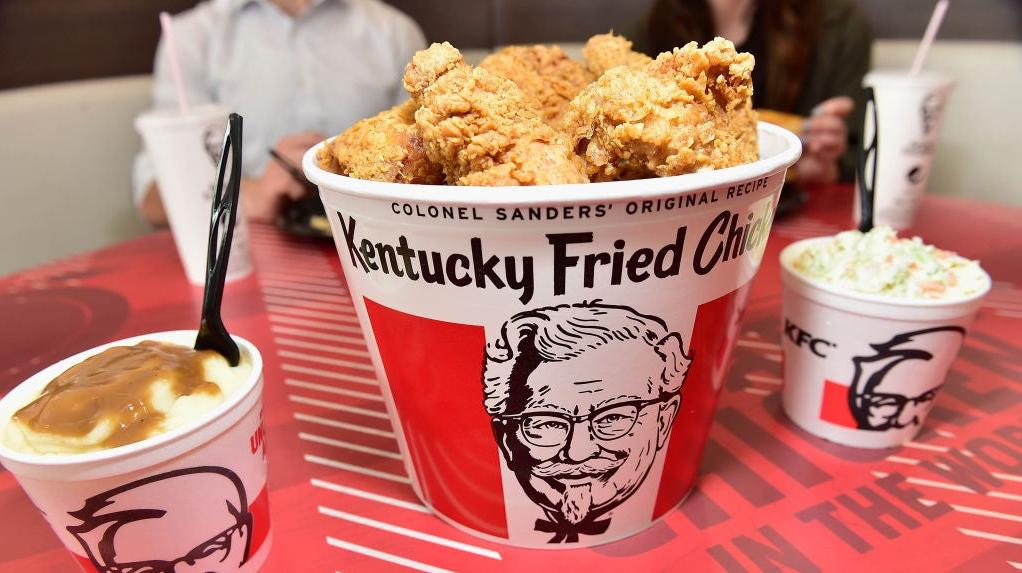Why Experts Think Fast Food Will Soon Ditch Meat Forever
Burger King aims to become 50% meatless by 2030. What does that mean for the industry at large?
Last month, Burger King embarked on its most ambitious meatless pursuit to date: a month-long 100% vegan menu trial at a high-traffic storefront in London. The trial concluded the week of April 10; shortly after, The Guardian reported that the test was a stunning success. Now, Burger King has set an even more ambitious goal: to offer a 50% meatless menu at all stores by 2030. At the same time, The Guardian cited an expert who proclaims that all fast food will be vegan sooner rather than later. Call me a cynic, but I don't buy it.
How Burger King succeeded in the meatless space
First, it's important to note that, yes, Burger King's move away from meat is a good thing. It's grounded in an urgent need to reduce consumers' reliance on meat products—especially when those meat products are coming from unimaginable factory farming conditions that disregard both animal and worker welfare.
So, yes, meatless is good. I say this knowing that I've been skeptical of meatless fast-food offerings in the past, especially since so many of them are prepared in cooking oil right alongside meat entrees. But as far as I can tell, an all-vegan fast food restaurant wouldn't have the same potential for cross-contamination.
Also important: the all-vegan Burger King trial seems to have been a success. Tasting Table cited an unnamed BK spokesperson who claims the trial location "attracted customers of all dietary preferences," including meat-eaters. The menu does sound tasty, with options including a "chicken" katsu burger and vegan nuggets. Ultimately, it seems that BK capitalized on two factors during the successful trial run: the restaurant's central London location and the approachable nature of deep-fried fast food, meat or no meat.
James Lewis, who works in marketing and product development for two popular vegan restaurants in London, confirms this. "What we were looking for was to appeal to everyone in a family, a group of friends, people who weren't vegan to begin with," Lewis told The Guardian. "We call [the vegan burger] a gateway dish, something someone is easily familiar with."
Will fast food chains commit to fully vegan menus?
Lewis went on to tell The Guardian that fast food restaurants will make the switch to fully vegan fare—potentially much sooner than anyone expects. "Fast food is 100% the best area to switch to vegan," Lewis said, adding: "The chains are often sneered at by people but they are setting the trends here. There's no point starting a vegan chain because once McDonald's figure out how to make a good vegan burger, they will think: 'What's the point in the cost of keeping all these animals when we can make it just as good and grow it in the ground?'"
Fast food outposts outside of the U.S. have already caught onto meatless cost-saving measures—for example, Burger King Japan's Guilty Butter Croquette Sandwich, which is packed with potato instead of animal protein. But will American fast food chains commit to fully vegan menus in the coming years? Unfortunately, I can't see that happening. Why? Because I can't see the meat companies giving up their fast food contracts without a hard fight.
The companies that supply meat for fast food operations are incredibly powerful. Take Koch Foods and Tyson, both cited by Reuters as Yum! Brands suppliers. (Think Taco Bell, KFC, and Pizza Hut.) Per watchdog agency Open Secrets, Tyson spent $1,954,176 on lobbying in 2021, while Koch Foods spent a whopping $12,178,000. A whole lot of chicken equals a whole lot of money, and a whole lot of money equals a whole lot of political power. Will fast food brands turn to the light and stand up for environmental action? In a perfect world, sure. In our world, surely not.
